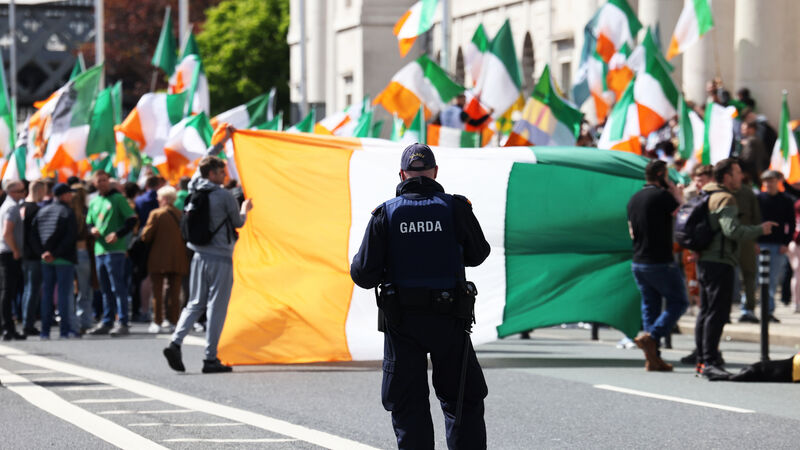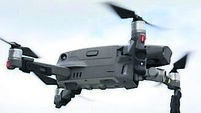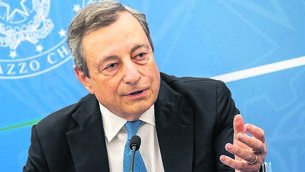How the global far-right uses Ireland to spread anti-immigrant narratives online

A member of the Garda Public Order Unit keeps an eye on the huge crowds of people at a far-right protest outside the Custom House in Dublin city centre. Picture: RollingNews.ie

















